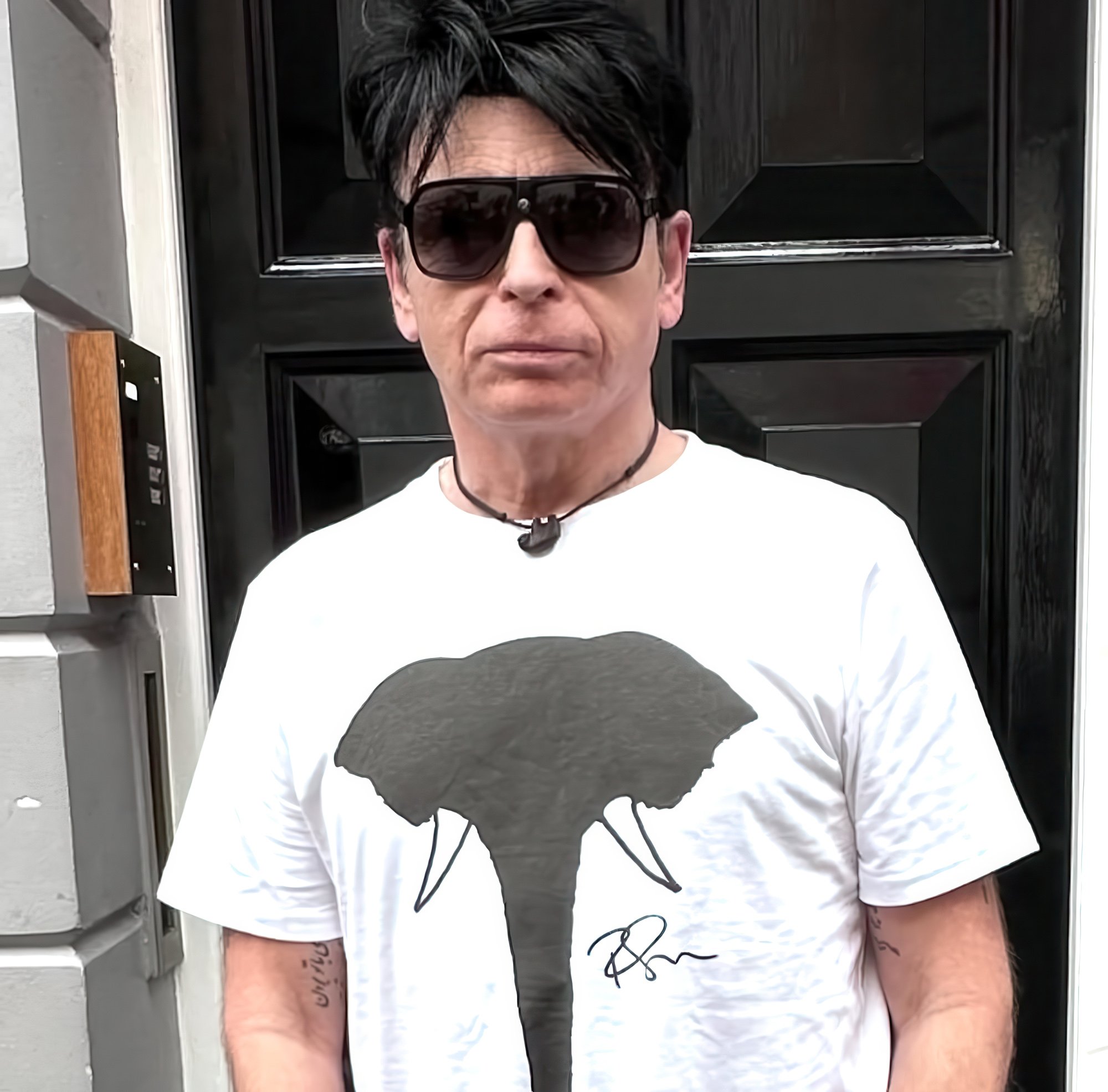Randy Travis Reimagined: AI Breathes New Life into Country Legend’s Voice
Left: Jamey Johnson; Right: Randy Travis
Image Credit: TheRandyTravis | IG
The country music world is witnessing a poignant blend of tradition and technology as Randy Travis, a beloved figure with a storied career, makes a remarkable return to the stage. Following a debilitating stroke in 2013 that left him with aphasia, Travis has faced immense challenges in continuing his musical journey. However, advancements in artificial intelligence have opened new avenues, allowing Travis to reconnect with his audience in unprecedented ways.
[Read More: AI Detects Hidden Heart Attack Risks – Better Than Human!]
AI-Powered Comeback: Bridging the Past and Present
Travis, now 65, has resumed touring and recording, leveraging AI to replicate his signature warm, velvety baritone. The latest tour, which concluded its 2024 run in Bowling Green and is set to continue in Tulsa next January, features a unique performance setup. Accompanied by his wife, Mary, and original touring musicians, Travis is represented on stage by James Dupré, a 40-year-old singer whose voice closely mirrors Travis’s iconic sound.
During concerts, Dupré performs Travis’s classics, while AI seamlessly integrates Travis’s voice for specific verses, creating a nostalgic yet innovative experience. This approach not only honours Travis’s legacy but also showcases the potential of AI in preserving and revitalizing an artist’s unique vocal identity.
Technological Innovation Meets Artistic Consent
The creation of Travis’s new song, “Where That Came From”, marks a significant milestone in AI-assisted music production. Developed with full consent and involvement from Travis, the track utilized 42 samples of his previous vocals, meticulously compiled by longtime producer Kyle Lehning. These samples were then processed through an AI program, layered over Dupré’s vocals, resulting in a song that authentically replicates Travis’s voice.
Mary Travis emphasized the collaborative nature of this project during a Capitol Hill testimony, highlighting that it was the first AI-generated song produced with comprehensive artist approval. This careful and respectful approach sets a precedent for future AI integrations in music, ensuring that artists retain control and agency over their creative outputs.
[Read More: UMG & KLAY Vision: Transforming AI Music with an Ethical, Artist-Friendly Model]
Industry Reactions: Embracing or Resisting AI’s Role
The music industry remains divided on the integration of AI. While some view it as a powerful tool for innovation, others fear it could undermine the authenticity and creativity that define the art form. The success of Travis’s AI-enhanced performances has sparked a broader conversation about the ethical and legal implications of voice cloning.
Tennessee’s enactment of the Elvis Act, which safeguards musicians against unauthorized AI voice replication, underscores the growing concern over artist rights. Major record labels, including Warner Music Nashville, Sony Music Entertainment, and Universal Music Group, have taken legal action against AI music generators, reflecting the industry's cautious stance.
However, Warner Music Nashville’s co-chair Cris Lacy advocates for AI’s potential to extend artists’ careers, as evidenced by Travis’s positive experience. This duality highlights the ongoing tension between technological advancement and the preservation of artistic integrity.
[Read More: Artists Unite Against AI in Music: A Call for Creativity and Fairness]
Fan Reactions: Emotional Resonance and Acceptance
Audiences have responded warmly to Travis’s AI-assisted performances, with many expressing profound emotional connections. Fans like Rachel Owens, who travelled from Dayton, Ohio, found the experience deeply moving, appreciating the opportunity to hear Travis’s voice once more despite his physical limitations.
Beth Ziesenis, an AI keynote speaker and attendee at the Nashville concert, noted the surprisingly positive reception within a traditionally conservative genre. The enthusiastic acceptance from both fans and artists alike suggests a growing openness to AI’s role in music, provided it respects and enhances the artist’s legacy.
[Read More: OpenAI’s Voice Engine: Revolutionizing Communication or Opening Pandora’s Box?]
Future Implications: Navigating the Path Ahead
Randy Travis’s successful integration of AI into his music career opens the door to numerous possibilities and challenges. As AI technology continues to evolve, questions arise about the future landscape of the music industry:
Legacy and Estate Use: Will AI enable estates to continue producing music from deceased artists, and how will this affect the authenticity and originality of new works?
Creative Growth: Could a focus on AI-recreated vocals limit opportunities for new artists, or will it coexist alongside human creativity to offer diverse musical experiences?
Ethical Considerations: Ensuring artist consent and fair compensation remains paramount as AI tools become more sophisticated and widespread.
Experts like Ben Camp from Berklee College of Music emphasize the inevitability of AI’s proliferation in music, advocating for transparent practices and equitable treatment of artists involved in training AI models.
[Read More: Harmony or Theft? Major Labels Sue AI Music Startups Over Copyright Concerns]
Randy Travis: A Legacy Rooted in Country Music History
For those unfamiliar with Randy Travis, his influence on country music cannot be overstated. Born in 1959, Travis emerged in the 1980s as a transformative figure in the genre. His debut album, Storms of Life (1986), became an instant classic, selling over three million copies and featuring chart-topping hits like “Diggin’ Up Bones” and “On the Other Hand”. Known for his deep, velvety baritone, Travis is credited with revitalizing traditional country music during an era when the genre was shifting toward pop influences. Over his four-decade career, he amassed seven Grammy Awards, numerous honours from the Country Music Association and Academy of Country Music, and was inducted into the Country Music Hall of Fame in 2016. His authentic storytelling and heartfelt performances cemented his place as one of country music’s most beloved icons.
Source: Washington Post, Wikipedia












